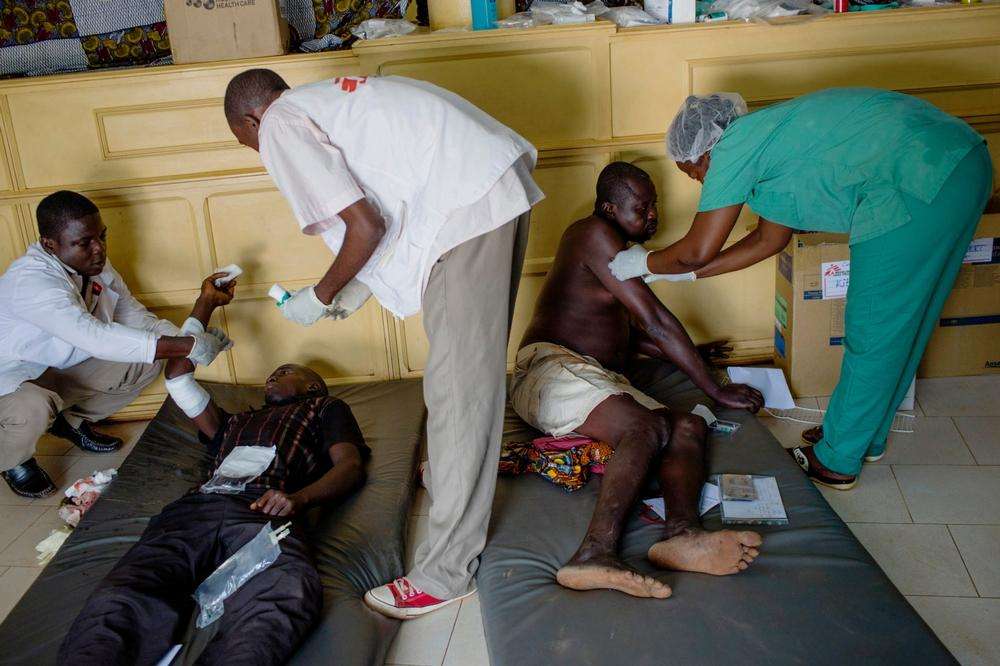PARIS/BANGUI, CENTRAL AFRICAN REPUBLIC (CAR) — On Sept. 26, violence broke out yet again in Bangui, capital of Central African Republic, forcing about 40,000 people to flee their neighborhoods to seek shelter and protection at sites including Mpoko camp near the city's airport.
Doctors Without Borders/ Médecins Sans Frontières (MSF) teams continue to provide assistance to the displaced in Bangui.
"They left with nothing and now they're living in the most appalling conditions," said Jean-Guy Vataux, MSF head of mission in Bangui. "Most have no shelter, no food and almost no access to medical care."
An uneasy calm returned to the city on Oct. 2. MSF teams immediately launched a needs assessment and on Oct. 4 began delivering emergency treatment to these newly displaced people.
MSF launched mobile clinics in temporary encampment sites at the Theology Faculty (FATEB), BenzVi, St Jean XXIII and the Adventist complex. Support is also being provided to Bangui's pediatric hospital.
Between Oct. 4 and 9, MSF teams conducted 1,063 consultations (17% for children under the age of five) in FATEB and BenzVi, primarily for malaria, respiratory infections, skin diseases and diarrhea.
Patient numbers are increasing daily, as local people learn about the available medical services. MSF teams are now looking into setting up further activities to respond to the numerous needs.
"In spite of the insecurity and the instability, most of our national and several of our international personnel have stayed in Bangui to help with the emergency," Vataux said. "They are being assisted by other international staff members who have arrived from Democratic Republic of Congo."
From Sept. 26 to Oct. 2, MSF teams provided care to victims of the violence in three of its facilities. MSF treated total of 183 wounded patients at the General Hospital and close to 200 wounded patients at Castor Maternity Hospital and the health center in Mpoko camp.
MSF has been working in CAR since 1996. In 2014, MSF teams provided more than 1.3 million medical consultations and treated 59,059 hospitalized patients.




